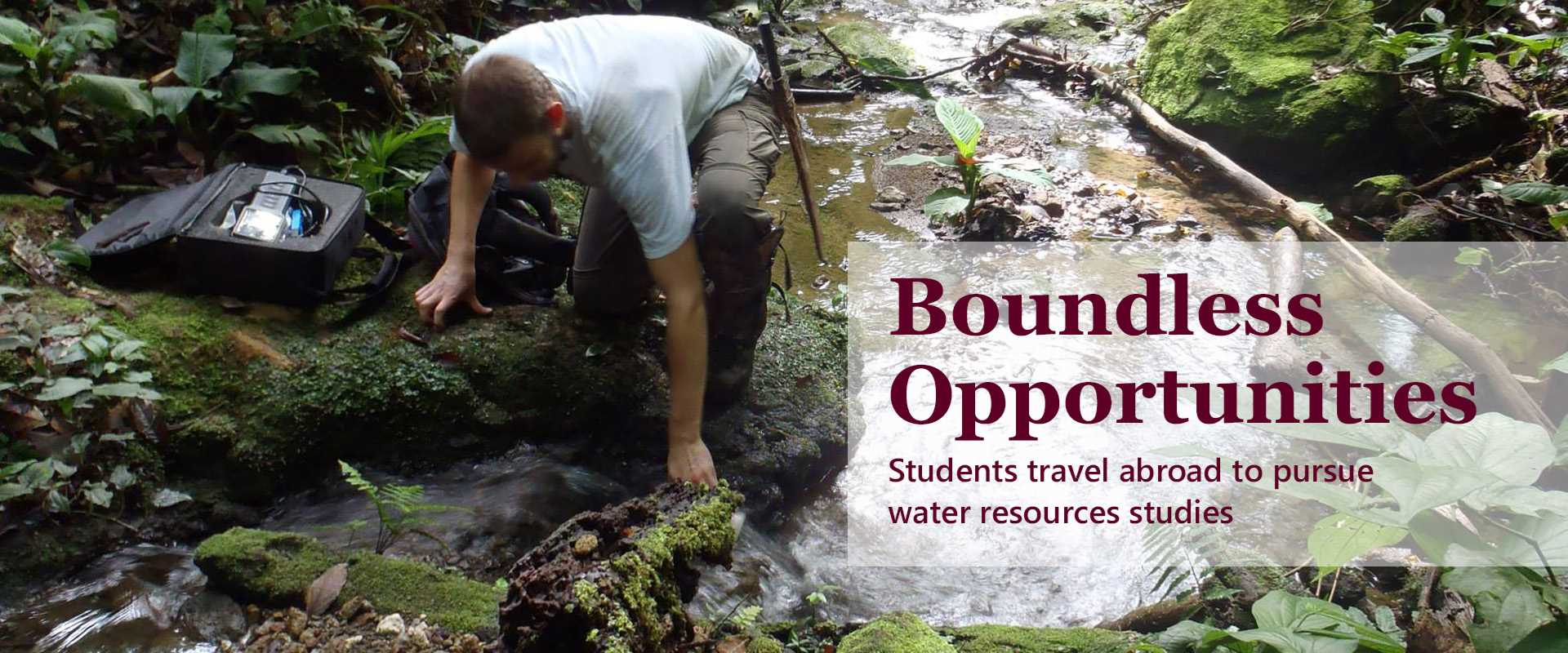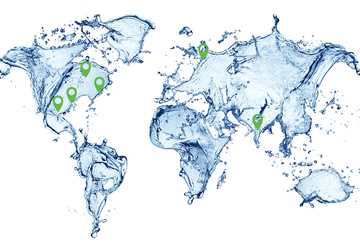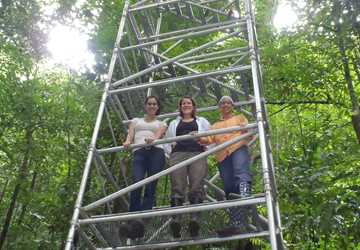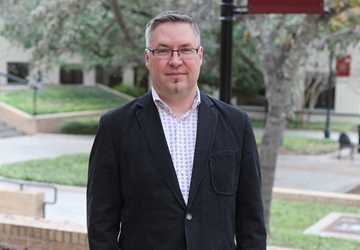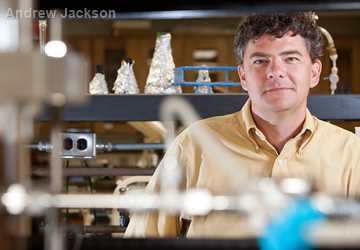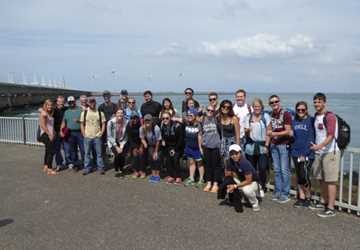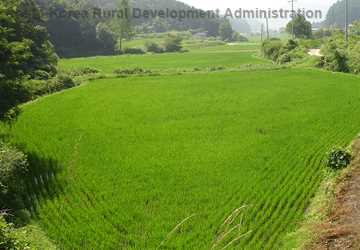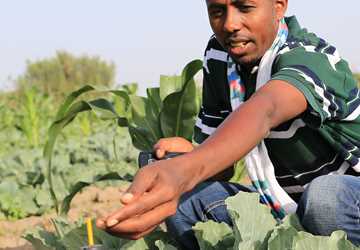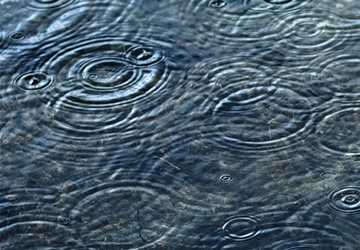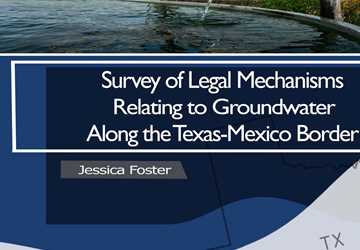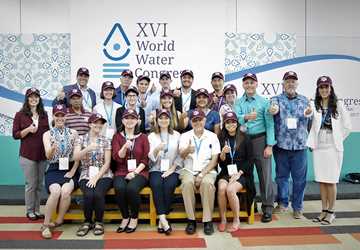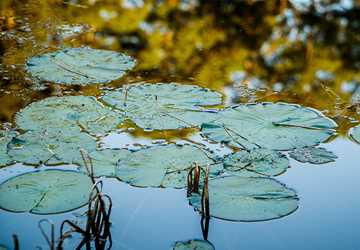By Claire Corley
Texas A&M University has more than 1,000 varied opportunities for undergraduate and graduate students to conduct research or study internationally. Among the vast opportunities are programs that focus specifically on water resources.
These programs not only give Texas A&M students the chance to travel internationally, but some programs invite students from other universities to apply.
The Biological and Agricultural Engineering study abroad in Belgium and a Costa Rica Research Experience for Undergraduates (REU) at the Texas A&M Soltis Center in Costa Rica are two specific programs focused on water-related studies.
Biological and Agricultural Engineering Belgium Study Abroad
Led by Dr. Clyde Munster, senior professor in Texas A&M’s Department of Biological and Agricultural Engineering, the A&M Belgium Environmental Science and Engineering program is a five-week program during the second summer session that focuses specifically on hydrology and wastewater treatment.
Munster said 2018 will be the 14th summer the department has taken undergraduate students to Belgium for this program. On average, 20 students go on the trip, but this year 30 have signed up, making it the largest group to date.
Based in Leuven, Belgium, the students take two classes, one in hydrology and one in wastewater treatment, and receive six hours of credit.
The Biological and Agricultural Engineering study abroad in Belgium and a Costa Rica Research Experience for Undergraduates (REU) at the Texas A&M Soltis Center in Costa Rica are two specific programs focused on water-related studies. These programs not only give Texas A&M students the chance to travel internationally, but some programs invite students from other universities to apply.
More information
Munster said the program also has four days devoted to field trips. The field trips typically consist of a morning stop and an afternoon stop to see environmental projects related to the courses.
Students are able to see many different water-related facilities, such as a wastewater treatment plant, a drinking water production plant, a water plant that collects groundwater and a pig farm where a constructed wetland is used in the manure treatment process.
Students also have a chance to see the unique Delta Works used for coastal protection in the Netherlands.
Munster said the Netherlands built a series of sea gates called the Delta Works to prevent flooding when the North Sea rises 3 meters (9 feet 10 inches) above normal. This flood defense system is made up of 13 sections with about 60 gates total that are open 99 percent of the time but can be closed to protect southwest Netherlands from flooding.
“The Dutch are very innovative because they are so vulnerable to sea storms and sea level rise that they are leaders in the technology for coastal protection, and it is great that the students get to see that,” Munster said.
He said students, especially those from Texas, enjoy this field trip because there are similarities with what can be done to protect people and industries along the Texas coast. The Belgium program is open to engineering and non-engineering students interested in water and the environment. In addition, Munster said this study abroad program is not limited to students at Texas A&M. Students from other universities from across the United States have participated in the program.
“It really enriches the program to have students from different universities coming together in Belgium,” Munster said. “They get to live together, go to class together and even travel together.”
Munster said he enjoys seeing the students grow throughout their experience abroad and how they enjoy living and traveling in Europe. The program gives students four-day weekends that allow them to travel to other countries and experience different cultures.
“This is where they get their true international experience. I see them become confident international travelers on these four-day weekends and their lives are changed forever right in front of my eyes,” he said. “That is really what motivates me to keep doing this year after year.”
When the students return from Belgium, many are interested in careers in water resources or wastewater treatment.
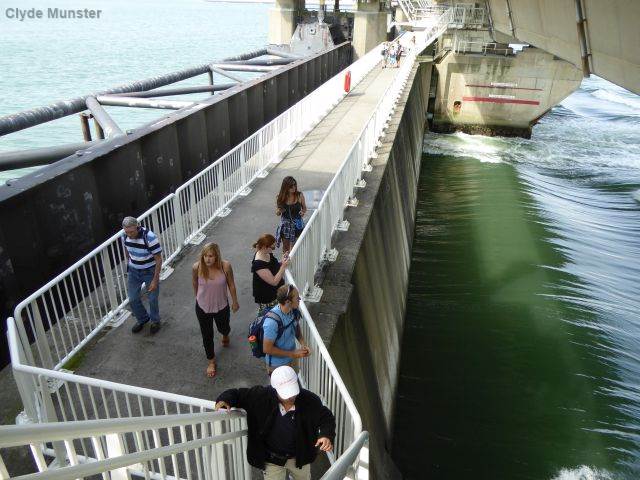
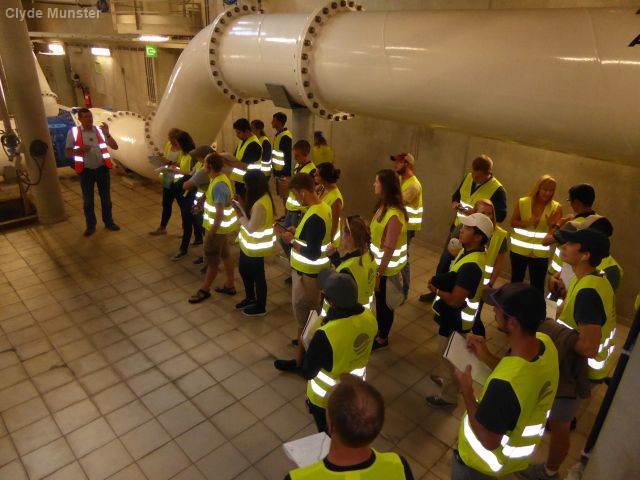
Research Experience for Undergraduates in Costa Rica
Another opportunity for students to study water research is the Ecohydrology of Tropical Montane Forests – Diversity in Science, Interdisciplinary Breadth and Global Awareness REU, funded by the National Science Foundation.
The program takes place at the Texas A&M Soltis Center for Research and Education in Costa Rica that was established in January 2009 with the purpose of supporting Texas A&M’s research, education and outreach initiatives in Costa Rica and throughout the Central American region. The center had another REU program from 2011 through 2013 that took 30 students to the Soltis Center to conduct research alongside a faculty member.
For the 2018 program, more than 100 students from all across the United States applied for only eight available spots.
Dr. Georgianne Moore, associate professor in Texas A&M’s Department of Ecosystem Science and Management (ESSM), and Dr. Kelly Brumbelow, associate professor in Texas A&M’s Zachry Department of Civil Engineering, are the program leader and co-leader for the current REU.
Moore said what makes this program unique is that the target was a group of students who would otherwise not have a chance to do research, such as students attending community colleges.
“They tend to not be as good at imagining themselves doing research for the summer, so we have to really get the students to understand it enough to make them want to apply,” Moore said.
The 10-week long research experience gives students hands-on experience with every step involved in the research process. She said the students are on the College Station campus for the first two weeks, for orientation, getting the gear ready and preparing to leave for Costa Rica.
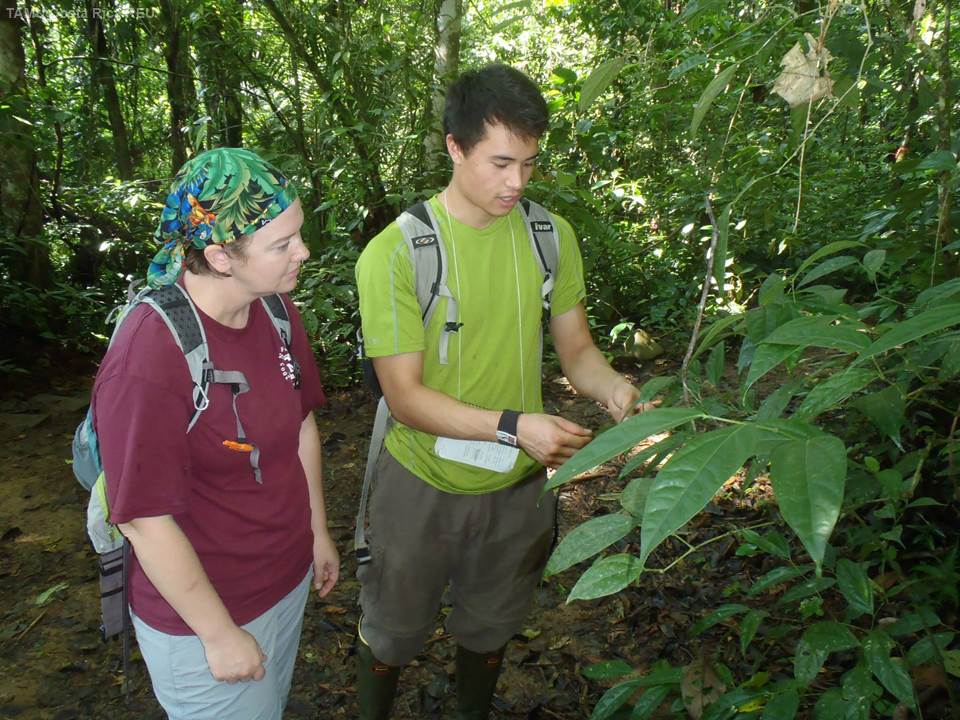
Students then spend five weeks at the Soltis Center before returning to Texas A&M to wrap up and present their research.
Moore said the five weeks in Costa Rica are where the students have the opportunity to conduct research alongside each faculty member.
“We are going to have the students work on as many projects with as many faculty as possible and work in teams for the majority of the time,” she said.
Faculty mentor, Dr. Gretchen Miller, associate professor in Texas A&M’s Zachry Department of Civil Engineering, said the faculty mentors are from all across campus in geography, engineering, ESSM and geology.
Miller said having the students work in teams with a faculty member produces more meaningful data than if the students were working individually.
Moore said the research this year will be on the hydrology of the Peñas Blancas watershed. The watershed extends to the Monteverde in the high mountain cloud forest, so students will be studying to understand how runoff processes are generated and how the water in the mountains and forested areas can impact agriculture downstream.
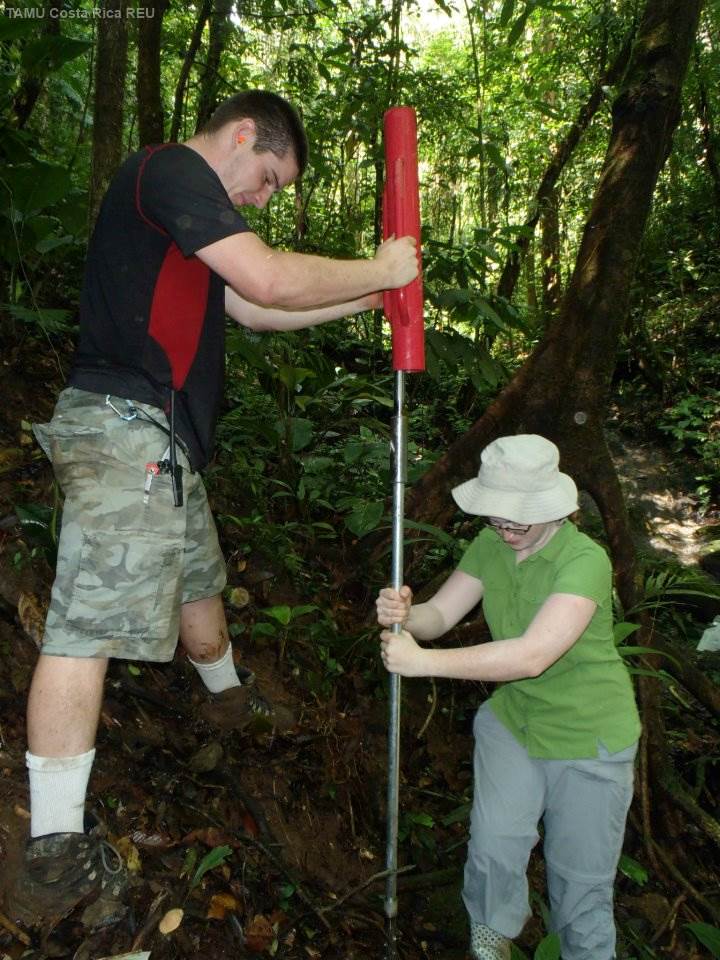
She said students will be investigating questions tied to the climate of the watershed, land use, how water moves through the soil and what kind of flow dynamics are in the streams.
"Students will be learning a lot about how the forest and streams respond when you get 5 meters (16 feet and 4.85 inches) of rain a year,” Moore said.
After returning to Texas A&M, students will spend the remaining three weeks in College Station analyzing data and preparing to present their results. Moore said at the end, students present the work at the Undergraduate Research Symposium on campus and submit an abstract to the American Geophysical Union.
Miller said the program’s overall goal is education and to expose these underrepresented community college students to the research process while capturing the creativity and excitement of being out in the forest.
“The whole idea of the REU in general is to get undergraduate students excited about research and pull them into graduate school, research community and have them play an active role,” Miller said.

